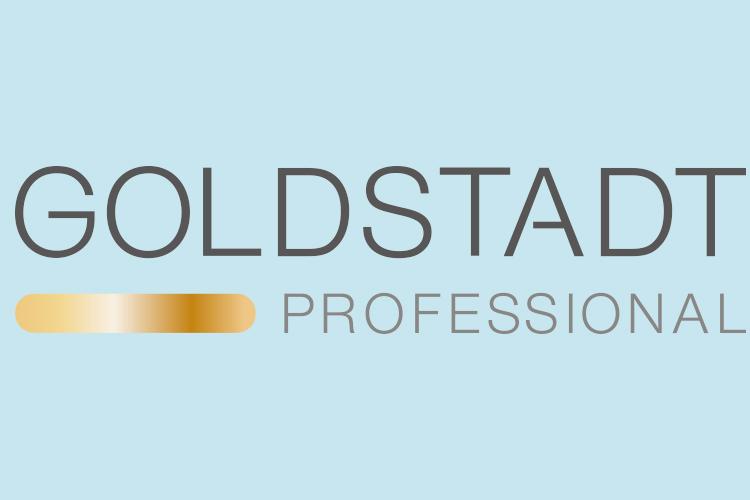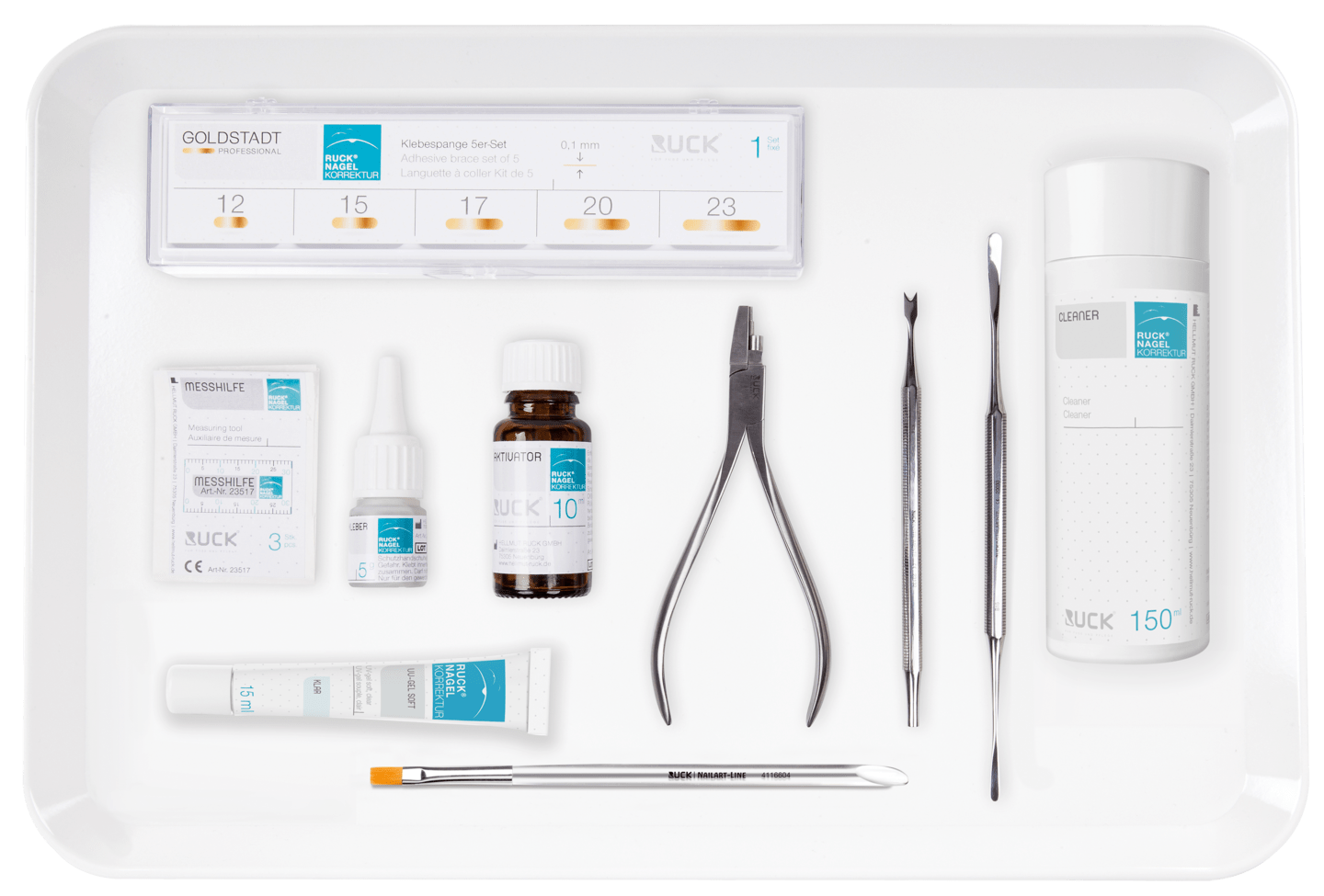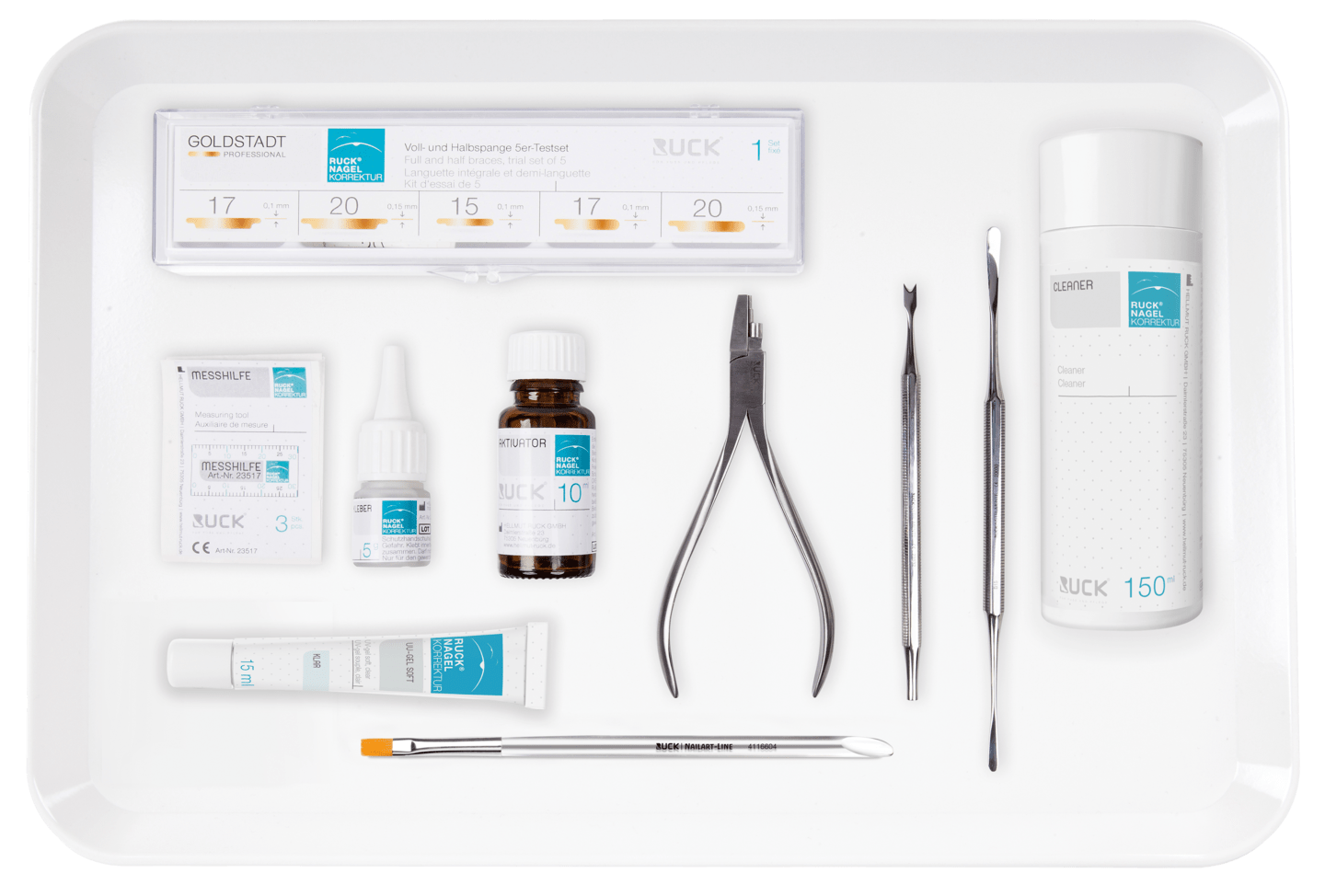Golden times for nail correction
GOLDSTADT professional: The ready-to-use brace for every application. Three application designs (adhesive brace, half brace and full brace) each in five sizes, offer a suitable brace for every nail. The full and half braces are available in two material thicknesses (0.1 and 0.15 mm). Depending on the size of the brace, it varies in width (2 or 3 mm). The ends of full and half braces are already prepared, so there is no need to cut them to size. This ensures a gold coating at the ends as well, which is important for the anti-inflammatory properties and reduced pain due to the rounding. In contrast to those braces where you have to cut to size, the ready-made GOLDSTADT professional offers clear benefits. A variety of sizes means there is a suitable brace for every nail dimension and severity of deformity. Each brace is completely gold-plated, including at the ends in the sensitive nail fold. The rounded ends reduce irritation and the tapered ends makes it easier to fit into the nail fold. The gold coating is not only visually appealing but the anti-inflammatory properties of gold are well documented, along with its hypoallergenic and adhesive properties. The GOLDSTADT professional proves that nail correction systems can also look good!

The law of leverage and the pivot point of GOLDSTADT professional
The GOLDSTADT professional uses the law of leverage, among other things, to achieve the desired result. When placed over a pivot point, if one end of the brace is pressed down (force of leverage), the other end of the brace is automatically lifted (lifting force) - comparable to a seesaw. If the end of the brace to be lifted is secured to the nail, e.g. by securing it with adhesive or by hooking it into the nail edge, the lifting force is transferred to the nail or the nail edge. A requirement for the generation of a lifting force instead is
that there is a distance between the nail plate and the end of the brace that is to exert the lifting force (pre-tension). Ideally, the brace is first fully adapted to the nail arch so that it sits perfectly (passive brace). The brace is activated by bending it against the arch of the nail - i.e. by creating the pre-tension just described. With you, the distance to the nail plate must not be larger than 3-4 mm, otherwise the leverage forces are too strong.
The 1/3 bonding rule for the adhesive brace and half brace
Before bonding, the ends of the brace should be minimally bent towards the nail plate as a result of which there are no protruding edges. The RUCK nail correction system adhesive is applied to the outermost surface (approx. 1/3). If the brace is bonded over the entire surface, the correcting force of the brace will be diminished somewhat.
Tip: Do not press too hard, otherwise the adhesive between the brace and the nail will be displaced and the adhesion of the brace will be reduced.






























































